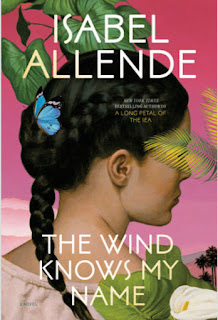I started listening to Prince Henry reading his memoir
Spare back in April. It's a long audiobook, nearly 16 hours, and a popular one, and I wasn't able to finish listening within the 3-week loan period from the library. As luck would have it, the day after I finished listening to
Eternal, this one popped back up as being available and I nabbed it. I was about halfway in and I wasn't sure if this one would grab my husband as much as
Eternal did. But I figured it would be perfect to save for the return drive of our road trip.
Both of us found Prince Harry's story compelling and pretty tragic although it wasn't like Eternal where we couldn't wait to listen to after each break.
I can't say that I'm one of those people who is intrigued by everything and anything related to the British royals. I'm not that person. Obviously Queen Elizabeth was the queen of England when I was a child, but she was just there, not anything I ever paid attention to. I do recall, though, when I was in college in the 1970s that Prince Charles came to the United States, the tour having something to do with the fact that he was getting on in years and it was time for him to marry. That's probably the first time I ever paid attention to anything royal. And who wasn't taken by Diana Spencer. I remember watching that royal wedding and definitely paid a little more attention to the royal family once she joined it.
Ironically, Lady Di and Prince Charles got married months before I got married and their divorce was final just a few months before my divorce from my first husband was finalized. Wow, we had so much in common!
Fast forward to May 2018. I was in New York visiting family. Diana's younger son, Prince Harry, was marrying American TV star Meghan Markle at Windsor Castle. The family we were with wanted to watch the wedding so we watched the wedding and hours of additional coverage about the royal family, about Meghan Markle. You name it, we watched it.
A person would have to be living in a cave to not hear at least some of the dirt about Prince Harry and Meghan. And when I say dirt, I mean dirt! Yes, they're public figures so what should they expect? But really, doesn't anyone need to be dragged through the mud the way that they have? They had to have some pretty good reasons for "quitting" as royals and moving to the United States.
Spare is Prince Harry's opportunity to tell their story. We get Harry's recollections of happy times with his mother. We get insight into the relationship that Harry has with his father, King Charles, and how that has evolved over time. We get to hear about the deterioration of Harry's relationship with his brother, William. And we get to hear about him falling in love with Meghan and the start of their life together.
Harry's story is tragic. When I said that to my daughter, she said she could have no sympathy for them. They're rich and as much as they do for society in the way of charities, they should be doing more. No one should have that much money and why does England even need royals? Okay, I get that. But that doesn't diminish in my eyes that no one should have to live the life that Prince Harry had lived. I bet he would have traded anything, any material object, to have his mother around, to not having the feeling like he was the "unnecessary" son, the "spare," and to have the freedom that my children had to make the choices they have made, whether good or bad.
I can give this a conditional recommendation. If you're at all interested in Harry and Meghan's story, I would suggest you listen to Spare read by the author.






































